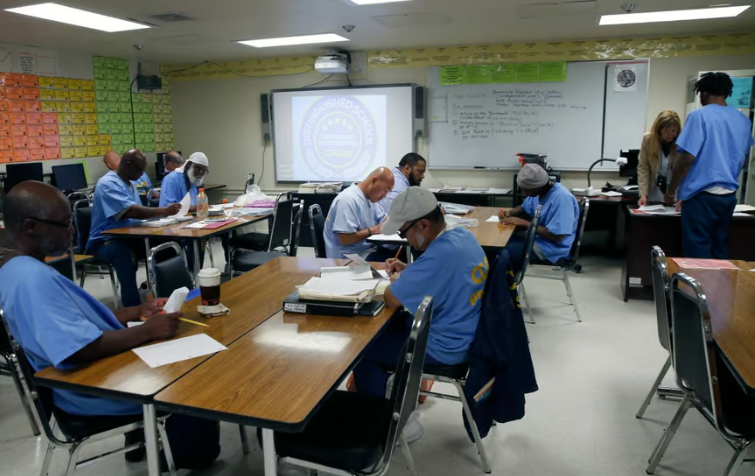Improving Access to Education for Justice-Impacted Students
Restoring eligibility for Pell Grants in 2020 allowed for improved access to college coursework for incarcerated persons

Currently, over 1.2 million people are living in some form of carceral facility in the United States. While 95 percent will eventually be released, prison is a revolving door. More than three-quarters of them will be back behind bars within five years.
The best way to break this pattern is to give incarcerated people the chance to enroll in college courses for credit earned toward a degree, as well as the financial and psychological support essential for success. Just one in six incarcerated individuals with an associate degree—and one in 20 bachelor’s degree-holders—ever return to prison. Taxpayers save as well; a year in prison costs more than a year at Harvard. What’s more, securing a college education for incarcerated personscan break intergenerational cycles of poverty and crime. Yet only 4 percent of this population, seven times less than the general public, earn a college degree.
In December 2020, US Congress removed a major barrier to college access when it restored Pell grants for currently and formerly incarcerated students. That program had been eliminated during the get-tough-on-crime 1990s. “Why should prisoners get something that our kids don’t?” went the argument, and even though the premise is false, as every student from a low-income family is eligible for a Pell grant. Restoring Pell Grant eligibility for incarcerated students means that more than 760,000 people in prison will have an easier time affording college behind bars.
The opportunity to receive a postsecondary education while incarcerated benefits individuals, their families, and their communities at-large.
- Employment opportunities - For the 95 percent of people in prison who will eventually rejoin their communities, having a meaningful job is vital to remaining free and thriving. The majority of all jobs require education and training beyond high school.
- Lower recidivism - Incarcerated people who participate in postsecondary education programs have 48 percent lower odds of returning to prison than those who do not. Not only does this mean safer communities and lower prison populations, it also saves taxpayer money. Every dollar invested in prison-based education saves four to five dollars in incarceration costs.
- Racial equity - College is a primary avenue for upward mobility—especially among people of color, who make up a disproportionate number of the prison population. Black Americans are incarcerated in state prisons across the country at nearly five times the rate of whites, and Latinx people are 1.3 times as likely to be incarcerated than non-Latinx whites.
College programs in prison must also support student success from enrollment through completion, which requires attention to the range of programs being offered, available technology that complements and does not replace in-person instruction, and student support services.
There are five steps that incarcerated people, their families and loved ones, and advocates and activists can take to ensure college prison programs are more accessible and affordable for everyone who wants the opportunity to work toward and earn a college degree.
- Send a letter to your school’s administration
- Share your support on social media
- Help ban the box in college admissions
- Inspire your campus community
- Learn more about college in prison and supporting justice-involved students
If you'd like to ensure your voice is heard, either for yourself as an incarcerated student or on behalf of incarcerated students, The Vera Institute offers a toolkit to amplify your voice toward making college prison campuses more accessible to justice-involved students.
You can download the toolkit here --->> Make Your Campus More Welcoming










